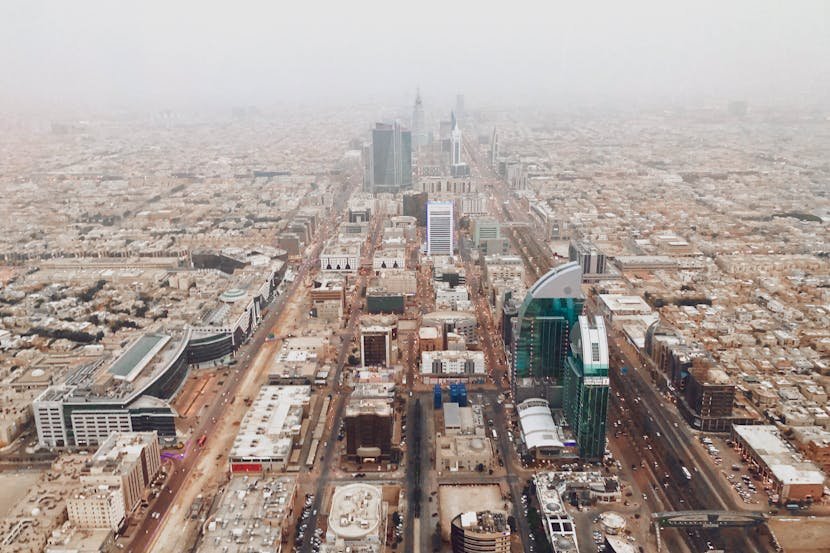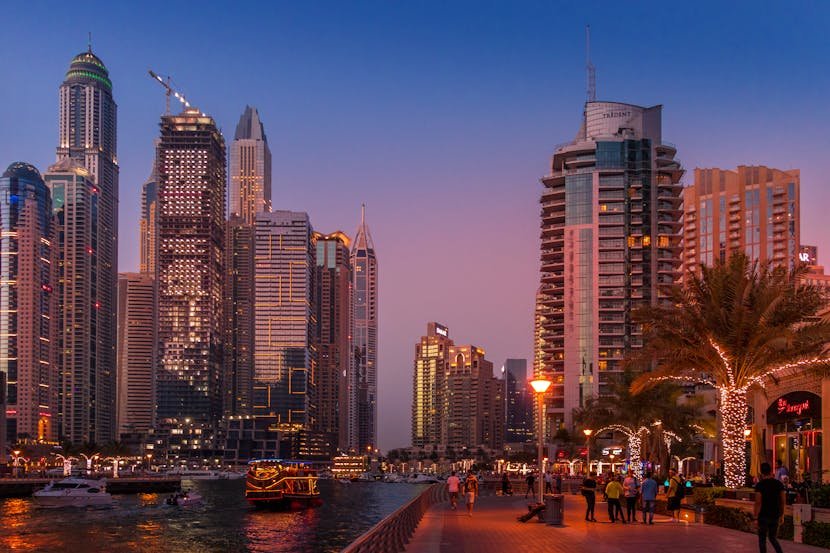The escalating war-like situation in the Arab World is raising widespread concerns about the potential decline in tourism across major destinations like the United Arab Emirates, Saudi Arabia, Jordan, and Egypt. These nations, which rely heavily on international tourism for economic growth, face challenges as regional instability deters visitors and disrupts travel confidence globally.
The UAE and Saudi Arabia, known for their modern attractions and luxury experiences, may experience drops in footfall as travelers reconsider visiting the region due to safety concerns. Similarly, Jordan—home to iconic landmarks like Petra—and Egypt—a top cultural tourism destination—are vulnerable to declining arrivals, as tourists associate the entire Arab World with unrest.
The impact extends beyond tourism losses, affecting related sectors such as hospitality, airlines, and local businesses. If the geopolitical instability persists, these economies could face significant revenue declines, job losses, and broader economic fallout. Governments must prioritize safety measures, crisis communication, and recovery strategies to mitigate the adverse effects and restore traveler confidence.
The long-term outlook for tourism in these nations hinges on regional stability and coordinated efforts to rebuild trust among global visitors, ensuring the sector’s resilience amidst ongoing challenges.
The Arab World, once home to some of the most sought-after cultural, historical, and leisure destinations, is currently reeling under the effects of a severe and escalating war-like situation. This geopolitical unrest has triggered widespread panic and disruption, causing an unprecedented decline in tourism, a sector vital for economic growth and international travel industries. Countries that heavily rely on tourism revenue are facing significant setbacks, as rising concerns about safety and stability have led to sharp drops in visitor arrivals.

Regional Unrest Disrupting Tourism Flow
The Arab World comprises regions that host prominent cultural landmarks, luxurious resorts, and historical marvels that attract millions of travelers annually. However, the ongoing conflicts, political instability, and violent escalations in key destinations such as Yemen, Syria, Palestine, and other Middle Eastern regions have severely hindered tourism. Frequent reports of air strikes, civil unrest, border tensions, and safety advisories issued by governments worldwide have magnified the perception of risk among international tourists.
With travel advisories urging citizens to avoid non-essential visits to certain Arab nations, airlines have also reduced or canceled flights to some regions, further aggravating the decline in arrivals. Hospitality businesses, airlines, tour operators, and local enterprises are bearing the brunt of this instability.
Impact on the Arab Economies
Tourism plays a critical role in the Arab economies, contributing heavily to GDP, job creation, and foreign exchange earnings. Nations such as the UAE, Saudi Arabia, Jordan, and Egypt have long depended on a steady influx of international visitors to fuel their hospitality and tourism sectors. However, with the latest unrest causing widespread concern, hotels, airlines, and travel agencies are reporting sharp revenue drops.
For instance, countries like Egypt and Jordan, which are home to globally renowned attractions such as the Pyramids of Giza and Petra, are experiencing lower footfall. The economic impact is far-reaching, as fewer tourists translate to job losses in local businesses, hotels, tour guiding services, and restaurants.
The Global Ripple Effect on Tourism
The impact of this crisis extends beyond the Arab World, affecting global tourism patterns. Travelers are reconsidering visiting not only the conflict-ridden regions but nearby neighboring countries as well, fearing spillover effects. Popular transit hubs such as Dubai and Doha are also witnessing booking declines as some travelers opt to reroute through alternative international airports.
Travel operators and airlines that operate heavily across the Middle East are particularly vulnerable. Many international carriers, including those operating connecting flights between Europe, Asia, and Africa, are seeing revenue decreases due to diminished demand. This has created a domino effect where travel agencies are struggling to meet business targets, leading to broader economic implications.
Decline in International Travel Confidence
Global travelers prioritize safety and convenience when planning vacations. The heightened war-like conditions have led to a significant drop in travel confidence, particularly among tourists from Europe, North America, and Asia. With media reporting daily updates on conflicts and risks, the perception of instability has become deeply entrenched. Even nations that are traditionally considered stable within the Arab World are being affected as tourists associate the entire region with conflict and unrest.
Security concerns have prompted governments to issue stricter advisories, limiting international mobility for leisure and business purposes. Moreover, major international travel events and exhibitions, such as tourism fairs, are witnessing lower participation and engagement for destinations associated with conflict zones.
Tourism Sector Faces Revenue and Job Losses
The ongoing tourism decline in the Arab World has direct consequences on millions of livelihoods. Small businesses dependent on tourism are among the hardest hit. Hotels report decreasing occupancy rates, guided tour companies face cancellations, and retailers in key markets are losing significant revenue. The loss of employment opportunities exacerbates existing economic instability in nations already struggling with other challenges such as inflation and currency depreciation.
Many luxury tourism operators who previously flourished in destinations like Dubai, Abu Dhabi, and Riyadh are now revising their revenue projections downward. Similarly, religious tourism—a major economic driver for countries like Saudi Arabia (home to Mecca and Medina)—has been impacted by concerns about security and logistics, though the scale of effect varies by region.

Long-Term Implications for the Tourism Industry
Should the geopolitical instability continue, the long-term implications for the Arab World’s tourism industry could be profound. Countries striving to rebuild their tourism infrastructure post-pandemic are now grappling with additional challenges. To mitigate these impacts, governments must implement stability measures, improve security assurances, and strengthen diplomatic ties to rebuild traveler confidence.
Investment in regional safety, transparent crisis communication strategies, and incentives for tourists, such as discounted packages or added security protocols, could help alleviate some of the sector’s immediate losses. Additionally, promoting tourism in safer areas within the Arab World—such as the Red Sea coasts or northern African regions—might redirect traveler interest.
Recovery Strategies for Tourism Businesses
To overcome the decline, tourism operators, hotels, and airlines in the Arab World are exploring multiple recovery strategies. For example:
- Enhanced Safety Messaging: Leveraging public relations campaigns to reassure potential travelers of improved security conditions in certain regions.
- Flexible Policies: Offering flexible booking and cancellation options to mitigate traveler hesitancy.
- Diversification: Focusing on domestic and regional tourism markets to reduce dependence on international travelers.
- Technology Integration: Using virtual tours and digital promotions to keep global interest alive in Arab World destinations until stability returns.
Governments are also encouraged to partner with tourism boards to emphasize safe travel zones and engage with global stakeholders to restore confidence.
Conclusion
The war-like situation in the Arab World has caused severe disruption and panic, leading to a sudden decline in tourism that impacts both regional and global travel industries. While the sector faces immense challenges, coordinated recovery strategies, international cooperation, and proactive policies can help rebuild stability and mitigate the economic fallout.
The long-term restoration of the Arab World’s tourism industry will depend on addressing safety concerns, improving regional stability, and delivering innovative recovery solutions to attract global travelers once again.
In case you missed it:
Read Travel Industry News in 104 different regional language platforms
Get our daily dose of news, by subscribing to our newsletters. Subscribe here.
Watch Travel And Tour World Interviews here.
Read more Travel News, Daily Travel Alert, and Travel Industry News on Travel And Tour World only.
The post United Arab Emirates, Saudi Arabia, Jordan, and Egypt May Experience a Decline in Tourism as War Like Situation Looms Arab World: Now What You Need to Know appeared first on Travel And Tour World.


